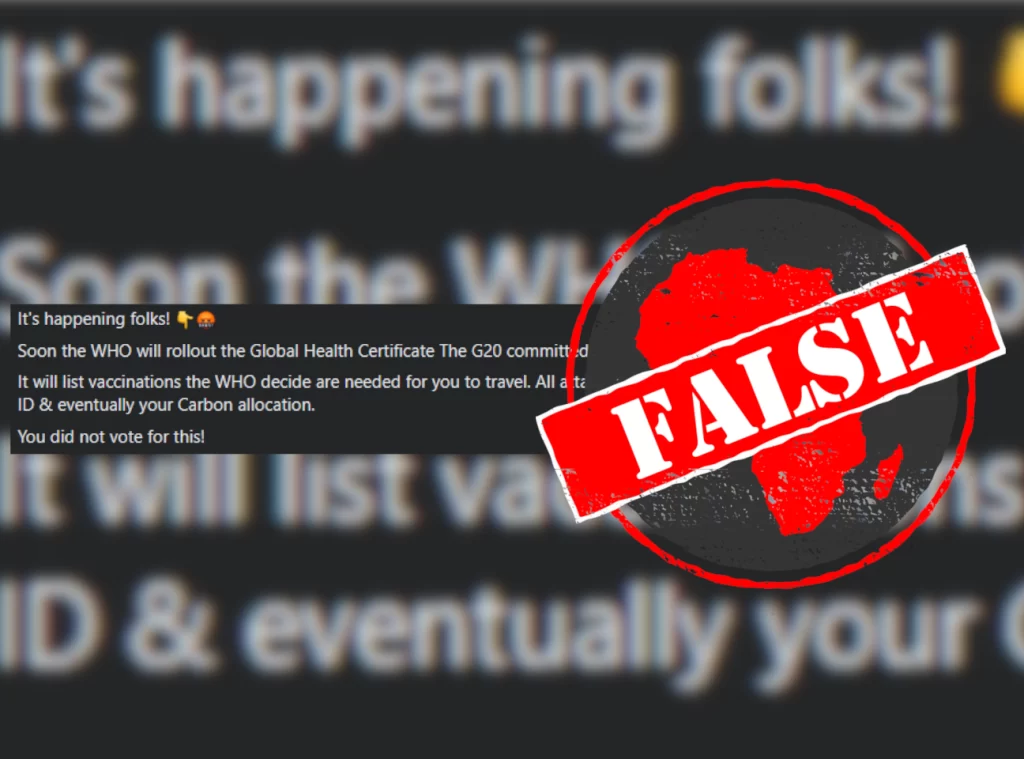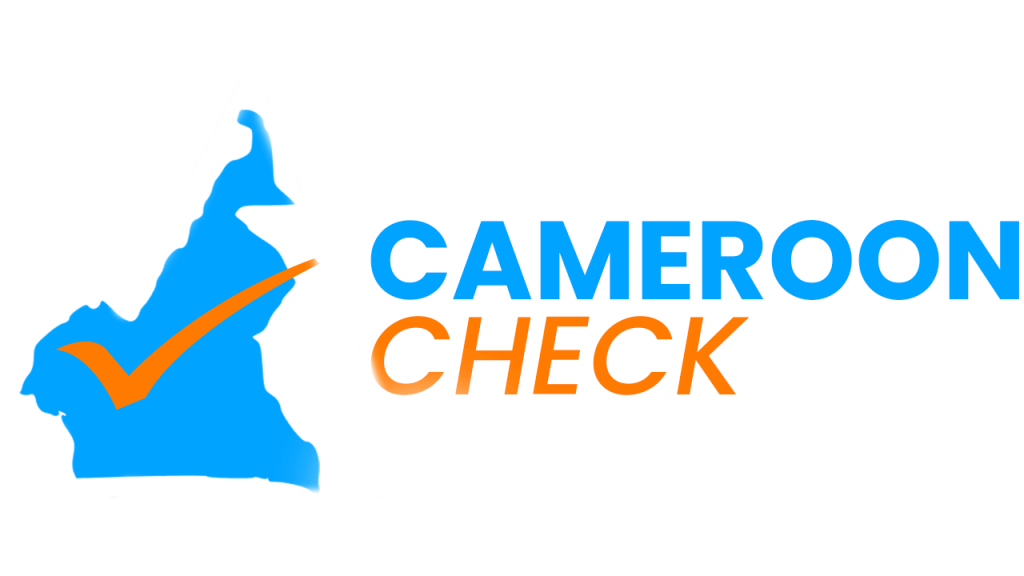Claim: The WHO’s Global Digital Health Certification Network, or GDHCN for short, does not allow the organisation to “decide” what vaccinations people in member states must have before they can travel. Ignore social media posts claiming otherwise about a global health certificate.
“It’s happening folks!”
That’s the start of a claim about a World Health Organization (WHO) initiative adopted in June 2023. The claim has been circulating on social media since November 2023 and into January 2024.
“Soon the WHO will rollout the Global Health Certificate The G20 committed to. It will list vaccinations the WHO decide are needed for you to travel. All attached to your Digital ID & eventually your Carbon allocation,” the claim reads.
Also view here, here and here.
The WHO is a United Nations agency with 194 member states. Membership is voluntary.
The G20 is an international body comprising 19 countries as well as the African Union and European Union (EU).
Many posts of the claim include a video of WHO director-general Tedros Ghebreyesus announcing the launch of the global digital health certification network (GDHCN) on 5 June 2023. The full text of his speech here.
But the WHO’s initiative is likely to make global travel easier, not restrict it.

No personal information stored
The GDHCN is open-source software that allows a WHO member country to quickly verify any travel-related medical certificate issued in another. Membership is voluntary.
It’s not a “global health certificate” that lists “vaccinations the WHO decide are needed for you to travel”. And there’s no evidence that the WHO has anything to do with any “digital ID” or “carbon allocation”.
Medical certificates are a requirement for visas that allow a person to travel from one country to another. They may provide proof of, for example, childhood vaccination, vaccination against rare but dangerous diseases only found in some parts of the world (such as yellow fever), and vaccination against Covid.
In some countries, visa requirements include testing for diseases such as tuberculosis and HIV.
The EU’s digital Covid certificate, or EU-DCC, served as the foundation for developing the GDHCN. During the Covid pandemic, this system enabled individuals to travel between visa-free countries of Europe, or even gain access to restaurants and pubs, by easily verifying their certificate, such as by scanning a QR code on their phone.
The certificate simply demonstrated that a person had received a Covid vaccination, tested negative for the disease, or recovered from it within the previous six months. It did not include any personal information, and the GDHCN does not either.
During the pandemic, the EU-DCC was used by all 27 of the EU member states and a further 51 countries across the world. When it came to an end in June 2023, the system was transferred to the WHO.
The GDHCN doesn’t take away the right of countries to issue health certificates, nor does it allow the WHO to “decide” what vaccinations people in member states must have before they can travel.
And it’s not a “global health certificate”,
Reposted from Africa Check written by Mary Alexander
Other Fact Checks From Cameroon Check check (click the hyperlink on Cameroon Check)
